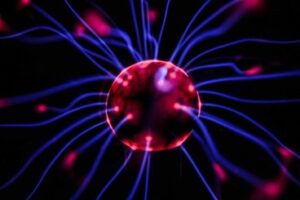Written by: Autumn Walsh (She/Her) MSW, LSW, CCTS
Hormones play a crucial role in regulating various bodily functions, influencing everything from mood to metabolism. Among the most significant hormones are progesterone, testosterone, and estrogen. Each has its own unique function and importance. (Learn more)
Progesterone
Progesterone is often referred to as the “pregnancy hormone.” It is produced primarily in the ovaries after ovulation, its main role is to prepare the uterus for potential pregnancy. It helps thicken the uterine wall, making it suitable for egg implantation. If pregnancy occurs, progesterone supports the embryo, ensuring a healthy environment for growth. If pregnancy does not occur, progesterone levels drop, triggering menstruation. Beyond reproduction, progesterone helps with many important bodily functions. Progesterone plays a significant role in mood regulation, thyroid function, bone health, and more. It impacts the immune system by producing anti-inflammatory properties. It can also impact brain function and cognitive capabilities by enhancing calming effects.
Testosterone
Testosterone or “T” is traditionally associated with people assigned male at birth (AMAB) but, T is equally important for people assigned female at birth (AFAB), albeit at lower levels. Produced in the ovaries, adrenal glands, and peripheral tissues, testosterone contributes to muscle strength, bone density, and libido. During the ovulation phase of the menstrual cycle, testosterone levels peak, enhancing sexual desire and energy. Testosterone supports physical and mental health. It promotes muscle health, emotional balance, and cognitive function, helping AFABs to feel strong and energized. Testosterone also influences menstrual flow (heavier or lighter flow) and cycle length. Additionally, T influences the growth of body hair and increases acne. Higher T levels in AFAB people can lead to chronic illnesses such as PCOS, Congenital Adrenal Hyperplasia, ovarian tumors and other ovary disorders, and endocrine disorders such as Cushing’s Syndrome.
Estrogen
Estrogen is a group of hormones, primarily estradiol, that are crucial for AFAB reproductive function. Produced in the ovaries, estrogen levels fluctuate throughout the menstrual cycle, peaking just before ovulation. This hormone plays a pivotal role in the development of female secondary sexual characteristics such as chest development and the regulation of the menstrual cycle. This hormone is vital for heart health, bone density, and mood regulation. It supports cognitive function and protects against osteoporosis.
Conclusion
Understanding progesterone, testosterone, and estrogen empowers people to appreciate the intricacies of the body. These hormones are not only essential for reproduction but also play a significant role in overall health and well-being. By recognizing their importance, we can better advocate for our health and embrace the natural rhythms of the body, leading to improved physical and psychological vitality.
The content of this blog does not replace professional medical diagnosis or treatment.

